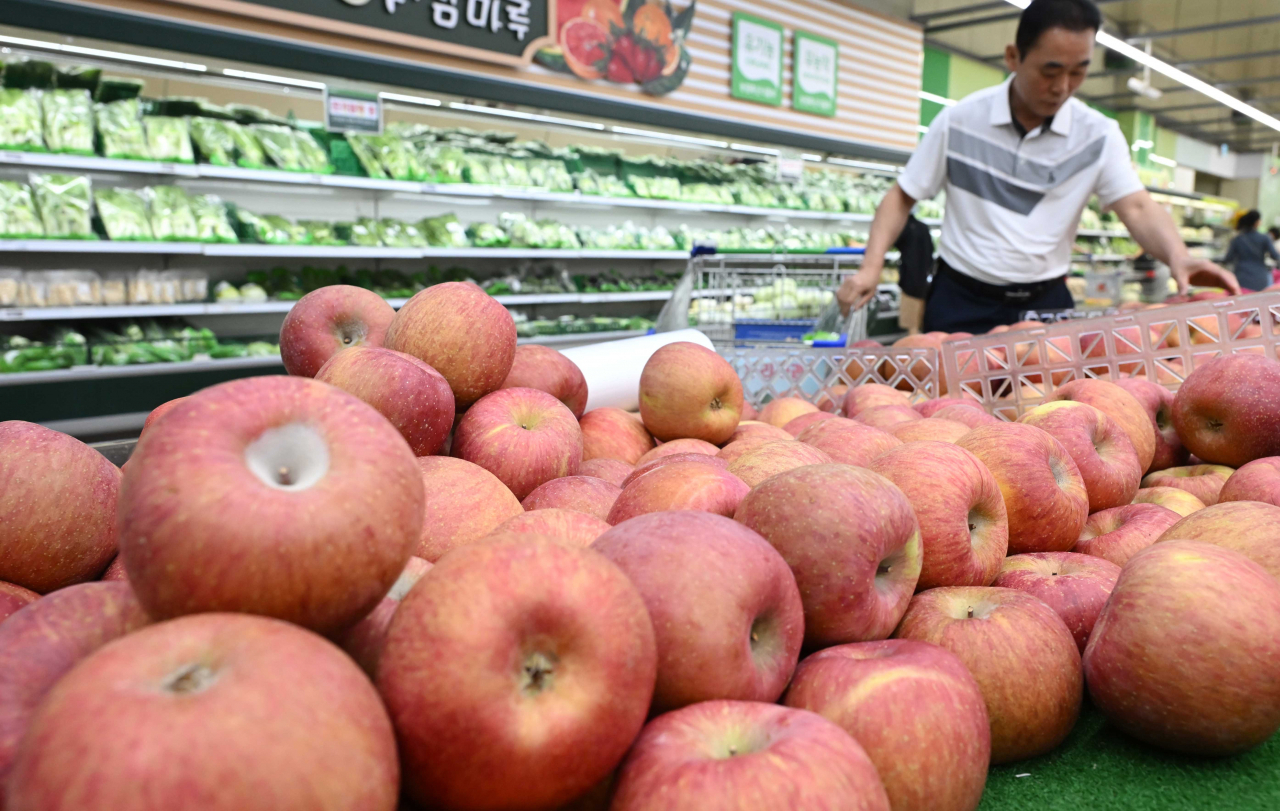 |
Apples are displayed at a large supermarket chain in downtown Seoul, June 28. (Korea Herald DB) |
The prices of apples and pears are expected to rise due to decreased fruit yields caused by poor weather conditions, according to data released by government-funded research organization Korea Rural Economic Institute on Wednesday.
The projection for the agricultural sector for August raises concerns because the two fruits are typically in high demand in September, as they are the most popular choices for gift sets for the upcoming Chuseok, or Korean Thanksgiving, holiday. The major national harvest festival falls on Sept. 28 through Sept. 30 this year.
“This year, the fruit yield has suffered the biggest damage in five years due to abnormal weather conditions which are expected to exacerbate with Typhoon Khanun,” said Park Su-jin, director general of the agricultural policy bureau at the Ministry of Agriculture, Food, and Rural Affairs. Typhoon Khanun was forecast to hit Korea's southeastern region from late Wednesday.
“While minimizing the damage from the typhoon, we will also ramp up cooperation with various organizations to ensure the stable supply of fruits at affordable prices for the Chuseok holiday.”
According to KREI, this year’s apple yield is projected to decrease by 18.7 percent on-year and 9.5 percent compared to the average year.
The average year refers to the average value calculated based on data from 2018 to 2022, after excluding the maximum and the minimum.
The wholesale price of Hongro apples -- a popular variety -- is expected to increase by 5.6 percent on-year, reaching 55,000 won ($41) per 10 kilograms.
Meanwhile, this year’s pear yield is expected to fall by 21.8 percent on-year and 4 percent compared to an average year. The wholesale price range of pears this month is projected to reach between 48,000 won and 52,000 won per 15 kilograms, soaring by 10.9 to 20.1 percent on-year, up from 43,000 won last year.
In response, the government has taken actions to stabilize the fruit supply and prices through various measures.
Since July, the Ministry of Agriculture, Food, and Rural Affairs has been operating a task force consisting of major supermarket chains and the National Agricultural Cooperative Federation to manage the fruit supply.
Centered around NACF, efforts are being made to secure a maximum supply of fruit for the upcoming Chuseok holiday. Through cooperation with retail industries, the ministry is considering expanding discount rates and promotional events for agricultural products.
Discussions are also underway to diversify the traditional gift set, which primarily consists of apples and pears, by mixing in other fruits such as grapes and melons.







